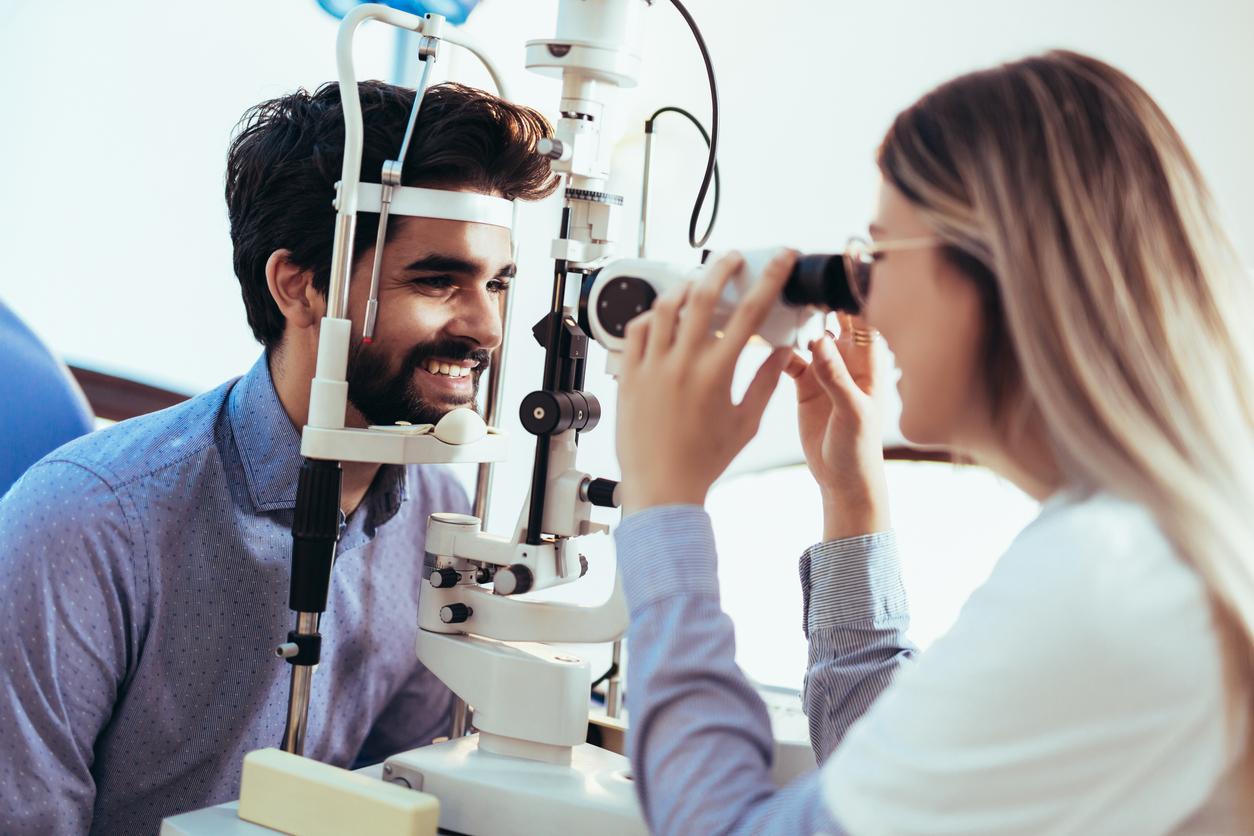Is It Time to Visit the Eye Doctor?

Regular eye exams are vital to maintaining your overall health. If you wear glasses or contacts, be sure to schedule an eye appointment at least once a year.
When was the last time you visited the eye doctor? If you can’t remember, it’s definitely time to book an appointment!
Roughly 11 million Americans ages 12 and over require some type of vision correction, according to the Centers for Disease Control and Prevention (CDC). Yet the CDC estimates that only half of the 61 million adults at risk for vision disorders have been tested by a specialist in the past year.
Routine eye exams are an important way to catch vision problems before they become more serious, as well as proactively monitor your overall health. Here’s what you need to know about scheduling an eye appointment — from how often you should go to what to expect when you arrive.
How Often Should You Visit the Eye Doctor?
Eye exams should begin for children at six months old. They should have a follow-up at age three and again at the start of school. If the child has several risk factors (low birth weight, crossed eyes, a family history of eye disease), or has exhibited vision problems, he or she may need a checkup earlier than six months or at shorter intervals. Children without any risk factors or issues with their eyesight should visit an eye specialist every two years until age 18.
Between ages 18 and 60, an exam every two years is the baseline. People over age 60 are advised to schedule an eye appointment at least once a year. More frequent eye exams are recommended if you have a condition that puts you at a higher risk for vision disorders, such as diabetes or high blood pressure. A family history of eye diseases like glaucoma also necessitate visiting the eye doctor more often.
You may need to increase your visits if, for example, you wear contact lenses or eyeglasses. Regular eye exams — generally recommended once per year — ensure that your prescription is up-to-date. If you start having trouble reading small print, notice flashes of light or floaters crossing your eyes, or have difficulty seeing at night, you’ll want to schedule a comprehensive eye exam to check for cataracts.
Your Comprehensive Eye Exam
During the first part of your comprehensive eye exam, your doctor will note your personal and family health history, with a particular emphasis on eye disorders. Then, depending on your individual needs, your exam may include the following tests:
Visual Acuity Test: To evaluate your near and distance vision, you’ll be asked to read a line of letters from a chart, with the characters getting progressively smaller as you read to the end of the chart. One eye will be covered as the other is tested.
Refractive Test. By shining a light into your eye, your doctor can see how the light reflects through your cornea and lens, and therefore identify any refractive errors. Astigmatism, nearsightedness, and farsightedness are all refractive errors that can be corrected with eyeglasses, contact lenses, or LASIK surgery. A refractive test, which is typically done with a computer, can also uncover other eye disorders, including macular degeneration or a detached retina.
Retinal Exam. After using eye drops to dilate your pupils, your doctor will shine a light into your eyes. This allows him or her to examine the retina, the optic disk, and the blood vessels feeding into the retina.
Glaucoma Screening. Glaucoma is caused by fluid building up in the eyes, increasing intraocular pressure and damaging the optic nerve. A tonometry test measures the level of pressure in the eye, with a higher than normal reading indicating glaucoma.
Your doctor may also test your peripheral vision and ability to distinguish colors. If your vision needs correction, your doctor will give you a prescription for contacts or corrective lenses. Any serious eye disorders can be treated at the earliest stages if detected during a routine eye exam.
Let Us Care for Your Eyes
At ICON Eye Care, we perform comprehensive eye exams that help our patients enjoy clear vision and healthy eyes. We can also diagnose eye disorders and put you on a treatment plan to improve your overall eye health. Book an appointment with us today.
[DISPLAY_ULTIMATE_SOCIAL_ICONS]








